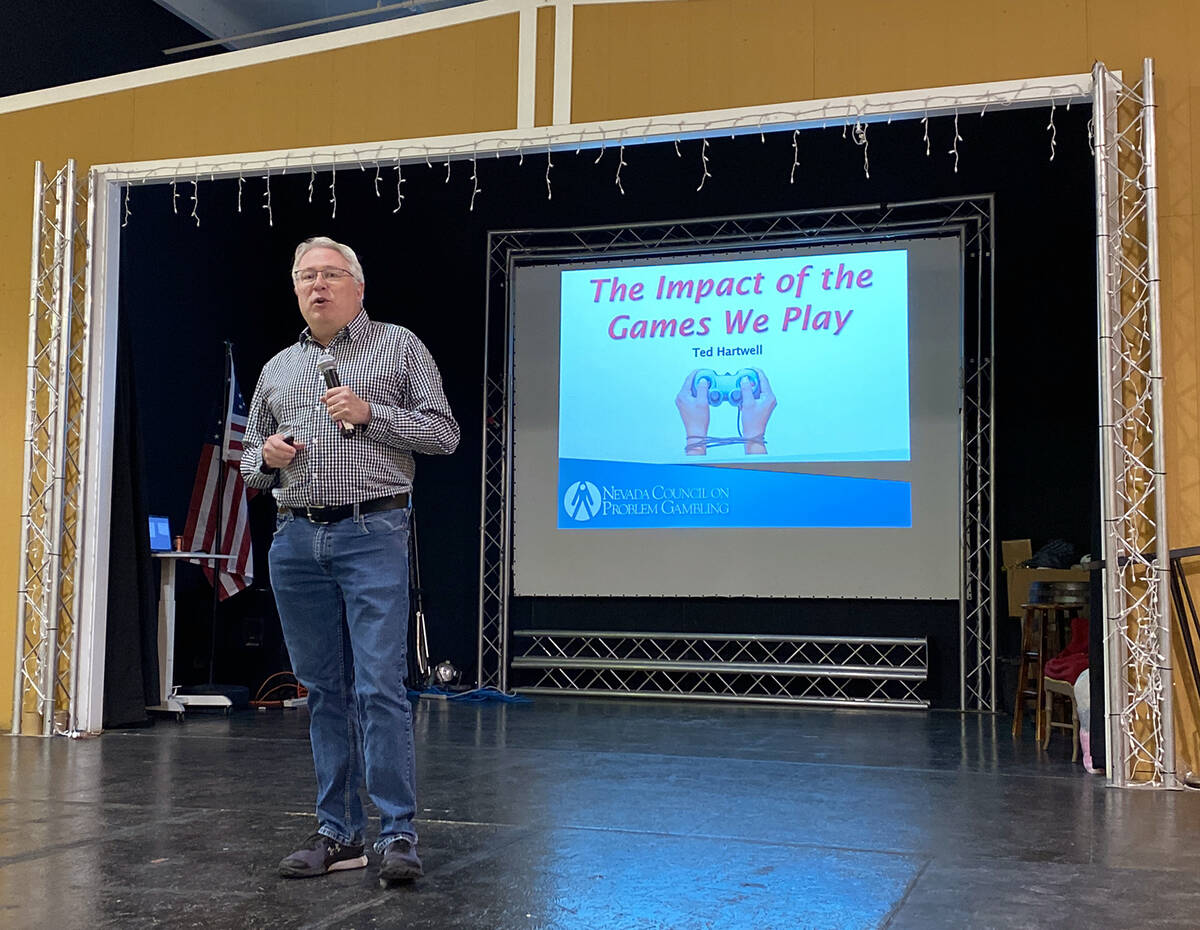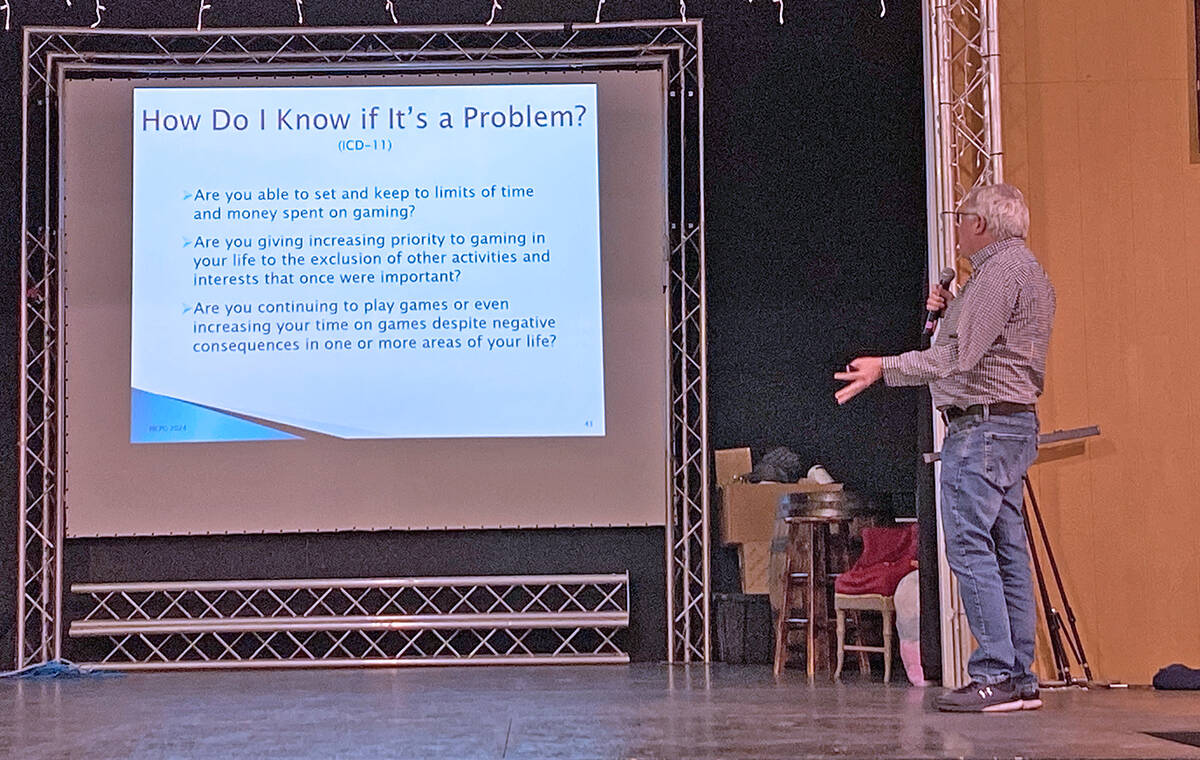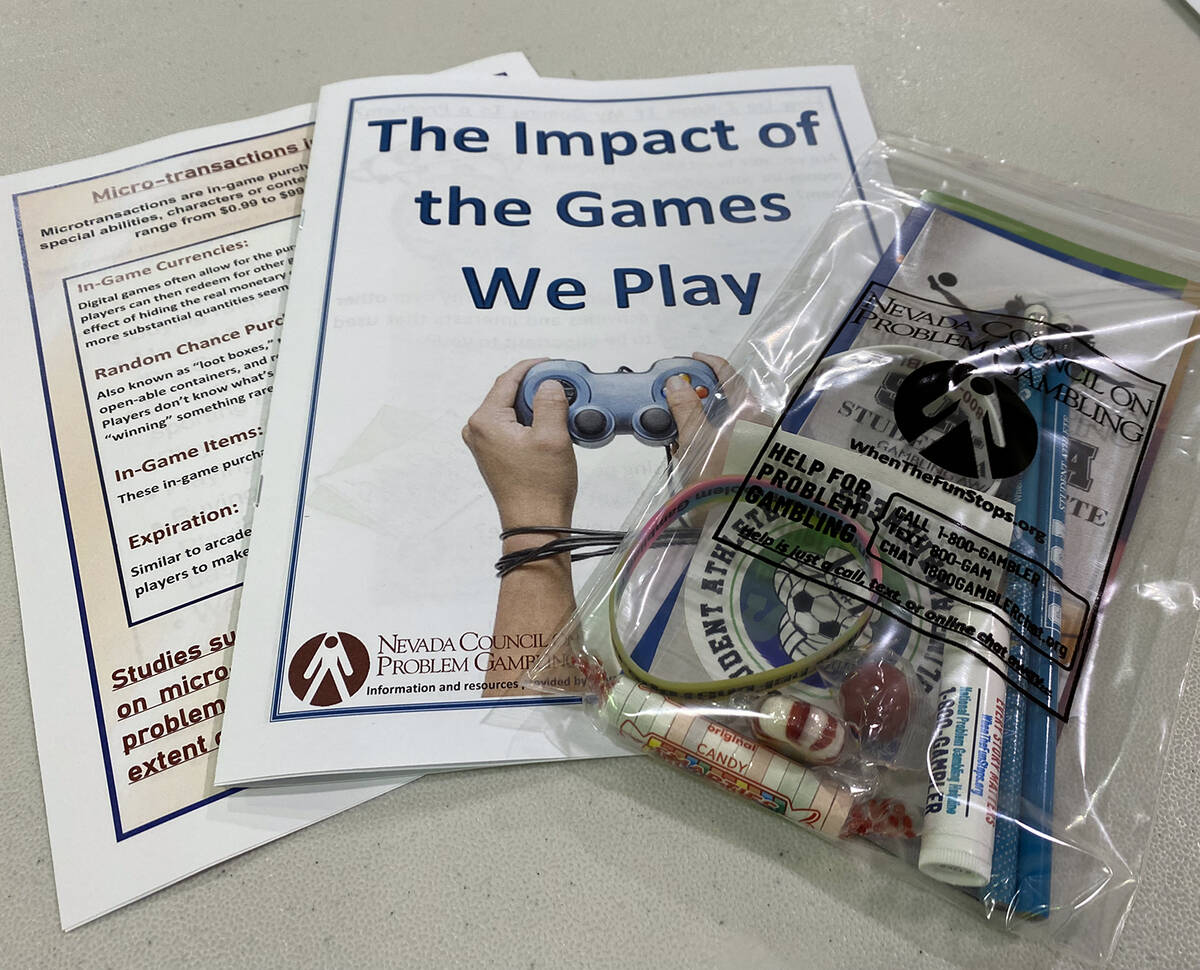Forum highlights reality of gaming and gambling disorders
Everything in life has an impact, including the recreational choices we make.
For many, utilizing video games and gambling for entertainment purposes is simply fun and comes with no problems at all but for others, these activities can become addictive.
To help educate the public during Problem Gambling Awareness Month, in March the NyE Communities Coalition partnered with the Nevada Council on Problem Gambling to host a community forum on “The Impact of the Games We Play.” Led by NCPG Executive Director William “Ted” Hartwell, the event focused on the relationship between gaming and gambling, common signs to identify if these activities are a problem for someone and ways to seek help.
Hartwell kicked off the presentation with an overview of his background and his own experience with gambling disorder, something that began long ago and took many years for him to finally confront. He holds a Master’s degree in anthropology and helped found the Las Vegas Philharmonic after moving to that city when he began his career at Desert Research Institute. It was during this time that his impulse to gamble really started to catch up to him.
“I developed a really serious gambling problem that sort of reached its head a little over 16 years ago, which impacted nearly every single area of my life. It just about ended my marriage, it impacted my work at Desert Research Institute, it impacted my attendance at the rehearsals for the Las Vegas Philharmonic,” Hartwell explained. “While I was the one with the problem, I was affecting a lot of other people in my sphere.”
Once he was in recovery, Hartwell started volunteering for the NCPG, which he stressed is neither for or against gaming or gambling but rather, is simply a mechanism to raise awareness and assist those suffering with gambling disorders.
“You may be wondering, what in the world is the overlap between video games and gambling? Why are we talking about these two things in the same breath?” Hartwell remarked. “It’s because there are a number of features that are making their way into video games that have the exact same impact on the reward center of the brain that gambling does.
“And we’re particularly worried about youth, children, because it’s known that the earlier you gamble as a child, the greater your risk of developing a gambling problem later on in life,” he continued. “So if we have features in these video games that are mimicking gambling in the way they effect the brain, they also have the potential to increase the risk that a child develops not only problems around video games but also gambling problems when they are older.”
Studies have suggested that micro-transactions in video games, be they on a cell phone, computer or gaming console, could be linked to internet gaming and gambling problems, although more research is still needed to define the extent of this relationship. Micro-transactions are purchases within video games, including for in-game currencies such as coins or jewels, random-chance purchases with undetermined outcomes and in-game items that provide an advantage in the game. Time limits and expirations are sometimes used to encourage these purchases in order to continue playing, as well.
“And it’s not a new thing that some of the virtual items in the games have real-world, monetary value,” Hartwell remarked, citing an article from 25 years ago about the subject. “Some people aren’t aware of this but some these accounts and even the objects in the games, the weapons, the armor, they are bought and sold for real money.”
So what are the signs and symptoms of gambling disorder and how many of these echo the signs and symptoms of gaming disorder? Hartwell said each of the following is a sign of both problems:
- Preoccupation - Thinking about the activity even when not engaged in it
- Withdrawal - Restless/irritable when cutting down or stopping
- Tolerance - Gambles with or spending increasing amounts of money
- Loss of Control - Repeated unsuccessful attempts to stop or limit activity
- Consequences - Continues activity despite negative consequences or losses
- Lying - Lies to conceal extent of involvement in activity
- Escape - Uses activity to escape problems or relieve negative feelings
- Relationships - Risks losing significant relationships, job, career
The only areas in which the two differ are bailouts and isolation. With gambling, bailouts — or the need for others to provide financial support — are a sign of an issue. Unique to video gaming disorder is isolation, or prioritizing that gaming over other activities and interests that once were important.
Hartwell emphasized that people facing these problems should understand that they are diagnosable medical disorders and that many others are dealing with the same challenges.
“It’s so important to have these conversations, starting at a pretty early level, to let people know this is a real thing but you can find help,” Hartwell said.
There are numerous resources available for anyone with a gambling problem. Those seeking help can reach out to the free, confidential problem gambling hotline at 800-GAMBLER or text 800GAM. There is an online chat option at 1800GamblerChat.org as well.
More information is available at WhenTheFunStops.org.
For those who may be struggling with gaming addiction, GameQuitters.com is a recommended resource. Started by Cam Adair, who became addicted to video games at a very young age, GameQuitters provides a network of support for those striving to recover from gaming addiction.
Contact reporter Robin Hebrock at rhebrock@pvtimes.com
















